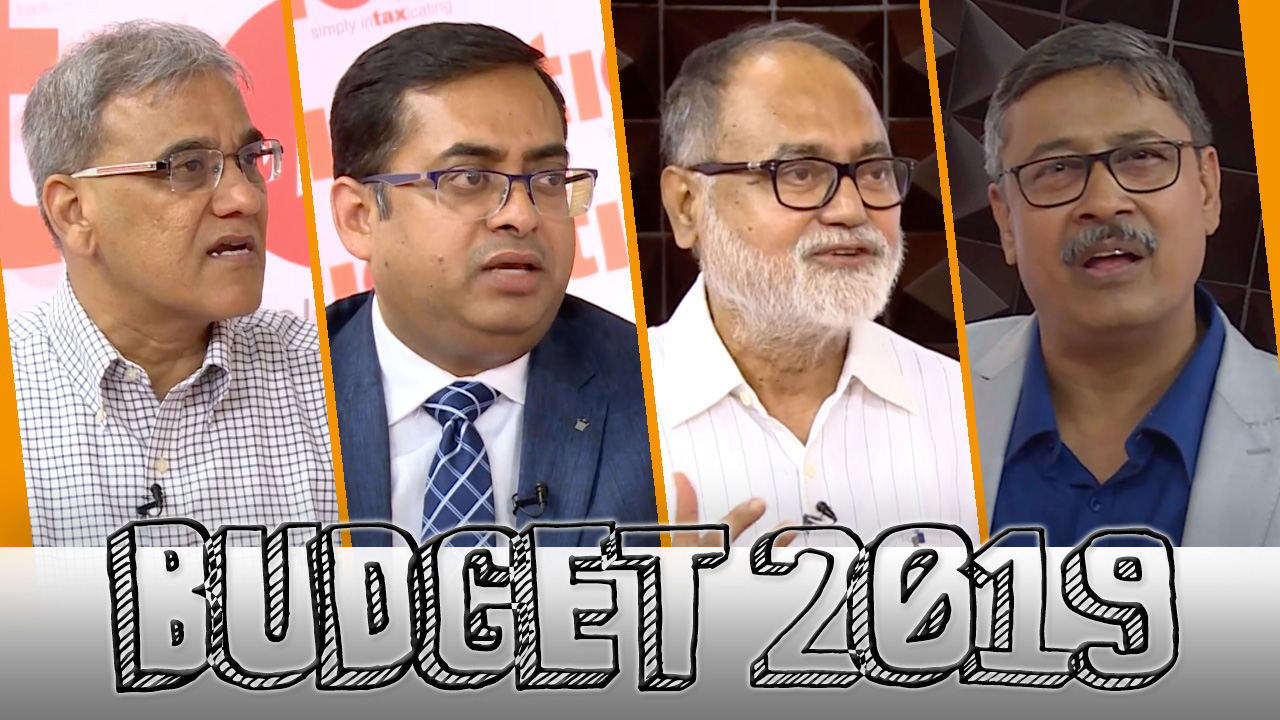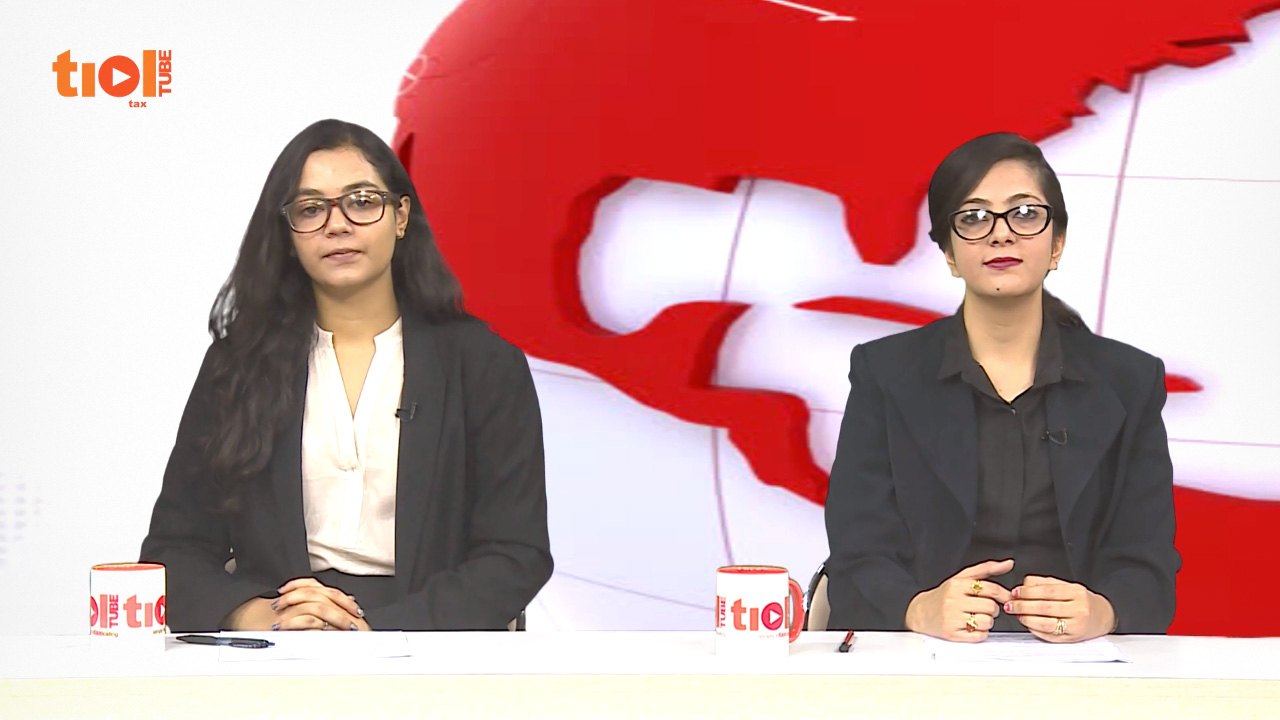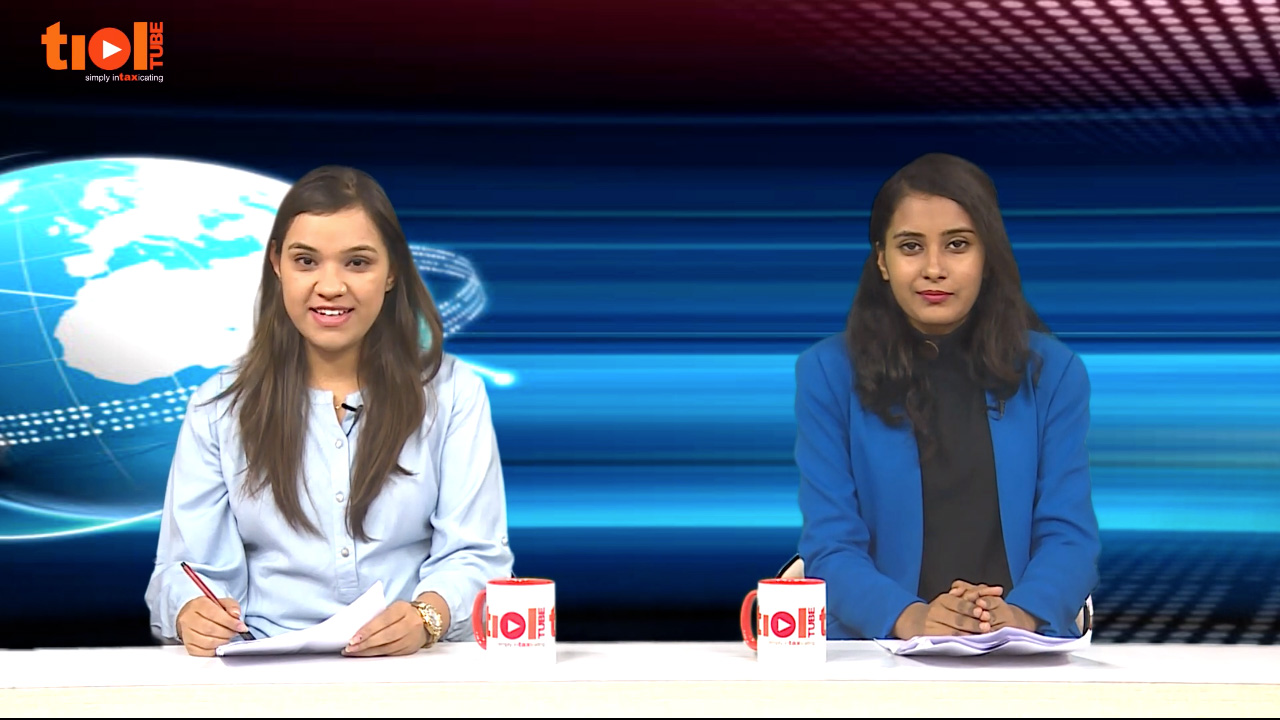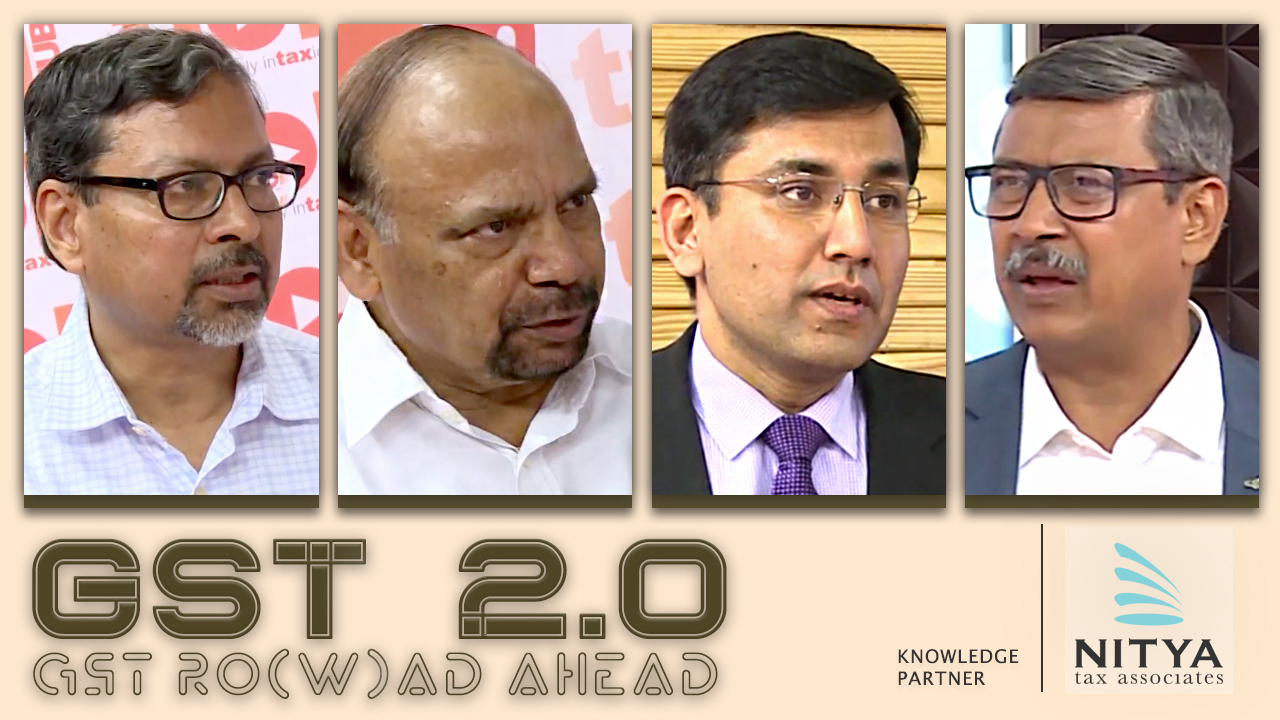|
SERVICE TAX
2019-TIOL-1692-CESTAT-BANG
Mukand Ltd Vs CCT & CE
CX - The assessee is engaged in providing mining of minerals service to M/s. Mysore Minerals Ltd. and for that purpose they have hired excavators, wheel loaders and tippers and have paid service tax to the service provider and has taken the credit which according to the audit party, assessee is not eligible and at the instance of audit, the assessee was directed to reverse CENVAT credit along with interest - The CENVAT credit amount of Rs.10,41,788/- also includes an amount of Rs.1,75,339/- which was paid towards cargo handling service provided by M/s. Shri Shivayogeshwara Transport Co. which was very much eligible for credit as 'cargo handling service' but the same was also denied - Further, both the authorities below have not considered the full definition of input service under Rule 2(l) during the relevant period which has resulted in the present proceedings - The excavators, loaders and tippers used for providing taxable service of mining of minerals are capital goods as defined in Rule 2(l) of CCR, 2004 and hiring of the said capital goods which is a taxable service, is eligible for CENVAT credit in terms of Rule 2(l)(B) of CCR, 2004 during the relevant period and the decision of Tribunal in the case of Soumya Mining Ltd. - 2017-TIOL-2432-CESTAT-DEL clearly held the same - Further with regard to limitation, the SCN which was issued on 07/11/2014 was for the period from May 2011 to May 2012 and the Department has not brought any evidence on record to show that the assessee has suppressed any material fact with intent to evade payment of duty - Moreover, audit was conducted and report was made available on 07/05/2012 and all the transactions have been recorded in the books of accounts and are verified by the audit party - In such circumstances, there cannot be any allegation of suppression with intent to evade payment of duty and therefore invocation of extended period of limitation is not sustainable in law - The impugned order is not sustainable on merits as well as on limitation: CESTAT
- Appeals allowed: BANGALORE CESTAT
2019-TIOL-1691-CESTAT-MAD
Nash Industries India Pvt Ltd Vs CCT
CX - While the impugned order has disposed off the rejection of claims for the two periods for implied benefit of two different privileges, the appeal pertaining to the earlier period had, in effect, been disposed off by the first appellate authority by rejecting the ground, to the effect that deemed exports do not qualify for refund under rule 5 of CCR, 2004, adopted in the original order - The rejection on a fresh ground that was not indicated to assessee vitiates the fresh proceedings that rejected the claim for refund - The first appellate authority had clearly directed the grant of refund and, notwithstanding the pendency of appeal before the Tribunal, it was not open to the refund sanctioning authority to raise a fresh ground - The High Court of Karnataka has, while disposing of the appeal of Revenue against the order of Tribunal in Nash Industries held that the clearances made by one 100% EOU to another 100% EOU which are deemed exports are to be treated as physical exports for the purpose of entitling refund of unutilized Cenvat credit contemplated under the provisions of Rule 5 of CCR, 2004 - No fault found with the order of first appellate authority and hold that the second order of the first appellate authority is not sustainable in law - Accordingly, the refund for the earlier period must needs be sanctioned to the assessee - The first appellate authority has approved of the order of rejection of claim for refund for the subsequent period on the ground of availment of privilege of export under claim for rebate during the same period while claiming the refund on deemed exports effected to eligible entities - Export under claim for rebate, as per rule 18 of CER, 2002, is restricted to, and applicable only for, physical exports - There is no scope for invoking the privilege of rule 18 of CER, 2002 for clearances effected to '100% Export Oriented Units' licensed in accordance with the Foreign Trade Policy notified under FTDR Act, 1992 - Consequently, the finding of lower authorities that there is an indirect benefit of both privileges fails the test of fact in these mutually exclusive clearances effected by the assessee - The CENVAT credit availed on inputs/input services used in manufacture of goods supplied as 'deemed exports' was, at the relevant point in time, not precluded from being refunded under rule 5 of CCR, 2004 - The impugned order is flawed and the assessee is entitled to claim for refund of accumulated CENVAT credit of duties/taxes on inputs/input services used in manufacture of goods supplied as 'deemed exports' - Consequently, the impugned order is set aside: CESTAT
- Assessee's appeal allowed: CHENNAI CESTAT
2019-TIOL-1690-CESTAT-KOL
CCE Vs Nuvoco Vistas Corporation Ltd
CX - The assessee is a manufacturer of cement which is cleared to both institutional buyers as well as to retail buyers - The latter clearances were made with Retail Sale Price (RSP) embossed on the packets - The dispute covers the period from March, 2007 to October, 2007 - The Department took the view that cement of all varieties were notified under Section 4A of CEA, 1944 and further that since the same type of cement is being sold at different RSPs, the highest RSP is to be taken and consequently the rate of duty payable on cement cleared by assessee should be charged to duty @ Rs.600 MT - The adjudicating authority has dropped the entire demand by accepting the duty already paid by assessee @12% of RSP as per the Sl.No.1A of the Notfn ibid - The limited grounds advanced by Revenue in appeal is that if clearances were made to Deputy Commissioner Singhbhum are similar institutional customers, such clearances will be chargeable @Rs.400 Per MT - While Tribunal found no infirmity in proposal the assessee has asserted categorically that no such supplies were made during the disputed period - As such the Revenue's appeal is rejected but with the direction to the adjudicating authority to charge duty @Rs.400 Per MT if any such clearances have been made in the disputed period: CESTAT
- Appeal rejected: KOLKATA CESTAT
CENTRAL EXCISE
2019-TIOL-1229-HC-MUM-CX
Responsive Industries Ltd Vs Commissioner of CGST & CE
CX - The assessee is engaged in manufacture of cotton coated fabrics and also holds service tax registration under category of GTA under the Act - During audit, it was found that the assessee had incurred expenses towards the outward transportation to its buyers but had not paid the service tax payable thereon - It is undisputed that assessee had not paid the service tax as outward transportation under category of GTA for period from April, 2009 to December, 2011, this even though they had admittedly incurred expenses for the same - It is only during the course of EA 2000 audit that above non payment of service tax on the part of assessee was discovered by the revenue - This discovery on the part of Revenue led the assessee to deposit the service tax as well as interest thereon even before the SCN was issued by revenue - Even if tax and interest on the same was paid before the issue of notice, it is not open to assessee to take benefit of section 73 (3) of the Act as the non payment of service tax was on account of suppression with a malafide intention to evade payment of service tax - Thus in view of section 73(4) of the Act, the benefit of section 73 (3) of the Act, claimed by assessee would not be available - The contention that there was a bonafide belief that the assessee is not liable to pay service tax on outward transportation of goods and GTA is not supported by any reasonable explanation - The bonafide belief that one is not liable to pay the tax has to be based on some facts on record which led to the belief - It is not the assessee's case that the belief based on a ruling of the some authority that it not liable to pay service tax on outward transportation - A mere statement to the effect that the assessee was under a bonafide belief of non liability of paying tax cannot be accepted in the face of clear provision of law - Thus, it is not possible to accept the contention that assessee had bonafide belief of for non payment of tax, so as to invoke section 80 of the Act - The view taken by Tribunal in the present facts is reasonable and possible view - Accordingly, the question of law as proposed do not give rise to any substantial questions of law: HC - Appeal dismissed
: BOMBAY HIGH COURT 2019-TIOL-1694-CESTAT-MAD
Commissioner of GST & CE Vs SSI Media India Pvt Ltd
ST - Penalties under sections 76 and 78 of Finance Act, 1994 are mutually exclusive - When the adjudicating authority has considered and imposed penalty under section 76, the same cannot be set aside by the Tribunal in an appeal filed by department requesting to impose penalty under Secction 78 - There is also no ground stated in the appeal contending that penalty imposed under Section 76 is erroneous - Impugned order does not call for any interference - Revenue appeal dismissed: CESTAT [para 5 to 7]
- Appeal dismissed: CHENNAI CESTAT
2019-TIOL-1693-CESTAT-MAD
Valar Gokulam Satellite Promoters Vs CCE & ST
ST - The assessee is engaged in providing Cable Operators Service - SCN was issued to them for the period 16.08.2002 to 31.12.2004 proposing to demand short-paid service tax along with interest and also for imposing penalties - The assessee have contended all along that the services provided by them would not come within the definition of Cable Operators Service - They have relied upon the clarification issued by Board vide Circular dated 01.08.2002 - They were under confusion as to whether the connections provided to sub-operators would fall within the taxable net and whether would be taxable under cable operator services - The Board had clarified that only when it is provided to the ultimate customer, the assessee is liable to pay service tax - It is seen that assessee had taken registration and thereafter not paid service tax except for the amount of Rs.2,380/- - The department has quantified the demand basing upon the estimation given by the M/s.SCV, who were providing link/signals to the assessee - There is no document to support such quantification of demand - There is no ground to interfere with the demand confirmed or interest thereon - However, taking note that there was a Board Circular dt.1.8.2002 which clarified that when MSO receives signals they first transmit signals to the cable operator who in turn retransmits the same to the viewers through the cable network and the liability is on cable operator providing service to the ultimate subscriber, assessee failed to discharge service tax placing reliance on such Circular - Being interpretational and bonafide doubt, and due to the peculiar facts of the case, this is a fit case to invoke Section 80 of FA, 1994 - The penalties imposed under Section 77 and 78 of the Act ibid are therefore set aside - The impugned order is modified to the extend of setting aside the penalties imposed only without disturbing the demand or interest thereon: CESTAT
- Appeal partly allowed: CHENNAI CESTAT
CUSTOMS
2019-TIOL-1232-HC-AHM-CUS
Adma Agro India Pvt Ltd Vs UoI
Cus/DGFT - EXIM Policy - Petitioners have challenged Notification No. 32/2015-2020 dated 30th August, 2018 issued by the Central Government restricting the import of peas classified under Exim Code 0713 10 00 (including Yellow peas, Green peas, Dun peas and Kaspa peas) till 30th September, 2018 as well as notification dated 28th December, 2018 restricting such imports from 1st January, 2019 to 31st March, 2019.
Held: Import of yellow peas in the interregnum period when the notification of withdrawal of the ban on import was issued on 29.8.2018 till 30.8.2018 when the restriction on import was again imposed - It is averred in the affidavit that the said Bills of Entry were filed on 29.8.2010 when there was no restriction in the online system for processing the Bills of Entry - It is further averred that since the Bills of Entry were filed when there was no restriction, the Assessing Officer assessed the same in accordance with law and cleared them - In the opinion of this Court, the withdrawal of the notification in compliance of the order passed by the Madras High Court cannot by any stretch of imagination be termed a promise held out by the respondents that the import of peas would be free henceforth - In fact, the notification itself clearly states as to why it has been issued - In the opinion of this court, the matter would fall solely within the realm of policy making and it is not for this court to substitute its opinion in place of the wisdom of the policy makers. The policy applies to all the importers alike. There is nothing arbitrary or capricious about the policy which appears to have been made in the public interest - it is manifest that the respondent authorities have taken due care in terms of paragraph 1.05 of the Handbook of Procedure. Under the circumstances, it cannot be said that the impugned notifications suffer from any legal infirmity so as to warrant interference - there is nothing to show that as to at what time the letter dated 29.8.2018 was received by the Government of India Press for the purpose of publishing the same in the Official Gazette - Be that as it may, the respondents have come up with a plausible explanation insofar as the manner in which the Bills of Entry in case of two parties were cleared within the short window between the time of withdrawal of the restriction and reimposition thereof - Besides, just like the petitioner came to know about the notification withdrawing the restriction and placed import orders immediately, the said parties upon coming to know of such withdrawal appear to have acted immediately to take advantage of the same, therefore, no further inquiry is required to be made in this regard by this court - In effect and substance, what the petitioner wants to contend is that as he had entered into contracts when there was no restriction, hence, he is entitled to import the same - In the opinion of this Court, in light of what is discussed hereinabove, the contention of the petitioner that he had entered into contract on the date when the restriction came to be removed and, therefore, he is entitled to import of such goods, does not merit acceptance - The relevant date for the purpose of import of peas as described in the impugned notifications is the date of import and the date on which the contract has been entered into by the petitioner is not relevant for the present purpose - in case of the petitioner in the second petition, no contract was entered into prior to the date when the restriction was initially imposed and the petitioner has only entered into contract within the short window between the date when the restriction was withdrawn and the again reimposed - In the opinion of this court, in the light of the clear language of the notification dated 29.8.2018 withdrawing the notification dated 2.7.2018, the petitioner in the second petition had no reason to believe that import of peas would be free thereafter and that there would be no restriction thereon - Petitions dismissed: High Court [para 15, 17, 24, 25, 27, 28, 29] - Petitions dismissed
:
GUJARAT
HIGH COURT 2019-TIOL-1231-HC-MAD-CUS
Adluri Foods Vs ACC
Cus - Inordinate delay in refunding the amount - Relying Section 27A of the Customs Act, 1962, the petitioner sought for refund of the balance amount of Rs. 53,583/- along with interest on the entire refund amount sanctioned by the authority from the expiry of three months from the date on which the refund claim became due - respondent rejected the claim on the ground that the process of refund was done within the stipulated time of three months and that the claim of interest would not arise - writ petition filed.
Held: Despite the orders in favour of the petitioner and several reminders being given, only a sum of Rs.3,59,531/- was refunded on 06.07.2015 and the entire amount was not refunded and there appears to be a mistake, as note was not drawn for all the bills and there was an outstanding of Rs.53,583/-, besides, there was an inordinate delay in refunding the amount - issue involved is no more res integra as various Courts including the Supreme Court made it clear that the delay in refund on duty attracts interest - impugned order is liable to be quashed and the petitioner is entitled for interest not only on the amount already refunded, but also on the amount of Rs.53,583/- qua which note was not drawn and was omitted from refund, as prayed for - writ petition is allowed and the impugned order is quashed - Consequently, the respondent is directed to refund Rs.53,583/- and to pay interest at the rate of 24% on Rs.4,13,115/- to the petitioner within a period of eight weeks from the date of receipt of a copy of this order: High Court [para 12, 13, 15, 16] - Petition allowed
: MADRAS
HIGH COURT
2019-TIOL-1230-HC-MUM-CUS
Eagle Burgmann India Pvt Ltd Vs UoI
Cus - The petitioner's grievance is that the impugned recovery notice dated 18.03.2019 is high handed as at no point of time did it receive the order dated 28.10.2016 nor did it receive any SCN preceding order dated 28.10.2016 - Thus the petitioner had no opportunity to present its case before the authorities or even challenge the same before Appellate Authorities - It is the further case of petitioner that, on merits they had been granted eight EPCG licenses in year 2006-2007 and petitioners have fulfilled export obligations in terms of licenses granted to them and also in possession of redemption letter issued by DGFT - Thus the entire action of respondents is high handed and arbitrary - The recovery notice as well as O-I-O is set aside - The respondent is directed in terms of statement made by Counsel on instructions to issue a copy of SCN leading to the order dated 28.10.2016 to petitioner and pass the order thereon after hearing the petitioner - The respondents are also directed to delete the petitioner's name from the "Alert List" - It is only if adjudication order is passed on SCN is adverse to the petitioner, that proceedings for recovery and consequent alert notice will be commenced by department after the period available to petitioner to challenge the same under the Act expires - It is clarified that, amount of Rs.10,00,000/ which has been deposited by petitioner with the respondents would continue to be retained by respondents, till such that, time an order on adjudication as directed above is passed: HC
- Petition disposed of
: BOMBAY HIGH COURT 2019-TIOL-1222-HC-MAD-CUS
Metallic Bellows India Pvt Ltd Vs CESTAT
Cus - The assessee is in appeal against order of Tribunal whereby the Tribunal rejected the appeal of assessee on the ground that the authority below was justified in not entertaining the subsequently filed documents exercising his discretion under Section 149 of the Act, which if exerised would have allowed the assessee to establish the fulfillment of conditions of Advance licence under which it imported the raw material in question to manufacture the finished products, namely, Metallic Bellows, which were exported with the shipping bills in question - The approach of authorities below as well as Tribunal has been narrow and pedantic - They could not take a hyper technical view in the matter and even though a provision like Section 149 of the Act allowed such subsequent documents to be placed on record by the exporter, they have been rejected without assigning proper reasons therefor - The assessee could have been very well allowed to produce those documents and the validity and veracity of those documents could have been examined by concerned authority and if the conditions of Advanced licence were satisfied with the production of these documents, the authority concerned could have verified and could have allowed the requisite benefit to assessee - The court is therefore inclined to allow the appeal and remit the matter back to the concerned assessing authority for taking on record these documents and consider the case of asseessee afresh in accordance with law: HC
- CMA allowed: MADRAS HIGH COURT
2019-TIOL-1221-HC-MAD-CUS
Bishan Saroop Kishan Agro Industries Pvt Ltd Vs C, CE & ST
Cus - The assessees are aggrieved by order of Tribunal whereby it is held that the exporter M/s. Big Bags International Private Limited was not entitled to custom duty draw back at higher All Industry Rate (AIR rate) for the reason that for the bags purchased by it, which were manufactured by M/s. Bishan Saroop, the said M/s. Bishan Saroop had availed Cenvat credit under relevant excise rules and in view of such Cenvat credit having been availed by manufacturer, the exporter M/s. Big Bags International Private Limited was not entitled to the higher duty draw back in terms of Clause 13 of the Notfn 103/2008- Cus (NT) - Since admittedly M/s. Big Bags has not purchased the bags in question from the open market but has purchased the same from the manufacturer M/s. Bishan Saroop, directly, who has been granted Cenvat credit in respect of bags in question, the duty draw back available to the exporter was liable to be reduced to that extent - Clause 13 of the said Notification is relevant, which has been quoted by Tribunal also and has been quoted by court - Clause (I) of the said Clause 13 clearly requires even the Exporter to satisfy the authority concerned that none of the credit facility has been availed for any of the inputs or services used in manufacture of the bags in question - In the absence of any proof of such non availment of Cenvat credit by manufacturer, obviously the assessee/merchant exporter was therefore entitled only to get the reduced duty draw back after deducting the amount of Cenvat Credit availed by manufacturer - This finding of Tribunal, is perfectly in consonance with the terms of the notification in question - There is no error in the same - The parity of reasoning sought and drawn by assessees with the subsequent notification where the goods have purchased from open market is not applicable to the present case - The appeal, therefore, has no merit and deserves to be dismissed: HC
- CMAs dismissed: MADRAS HIGH COURT |
|









